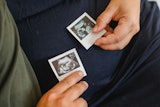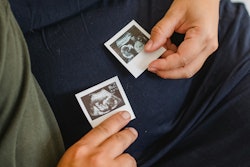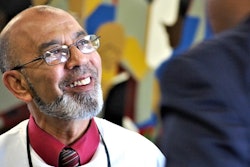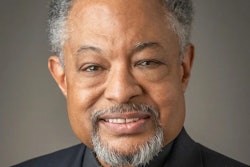Association of Medical Colleges Honors Former Surgeon General
SAN FRANCISCO
Former Surgeon General Dr. David Satcher is the third recipient of the Association of American Medical Colleges’ Herbert W. Nickens, M.D. award. Satcher was honored at the association’s 113th Annual Meeting held last month in San Francisco. Satcher delivered an address on targeting health care disparities by increasing the diversity of medical school applicants at the meeting.
The Herbert W. Nickens, M.D. Award, named for the AAMC’s former vice president of the Division of Community and Minority Programs, is presented to an individual who has made outstanding contributions to promote justice in medical education and health care.
As Surgeon General from 1998 to 2002 and assistant secretary for health, the second person in history to hold both positions simultaneously, Satcher led the federal government’s effort to eliminate racial and ethnic disparities in health care. This initiative was incorporated into one of two major goals of “Healthy People 2010,” the nation’s public health agenda for the next several years.
Satcher is currently director of the National Center for Primary Care at the Morehouse School of Medicine, where he once served as professor and chairman of community medicine and family practice, over two decades ago.
Last year, the Nickens Award was presented to former University of Michigan President Lee Bollinger for his commitment to promoting diversity in higher education. The first recipient of the Nickens Award was Dr. Donald Wilson, dean of the University of Maryland School of Medicine, and founding member of the Association of Academic Minority Physicians.
The Association of American Medical Colleges represents the 125 accredited U.S. medical schools; the 16 accredited Canadian medical schools; some 400 major teaching hospitals, including Veterans Administration medical centers; more than 105,000 faculty in 98 academic and scientific societies; and the nation’s 66,000 medical students and 97,000 residents.
© Copyright 2005 by DiverseEducation.com





















